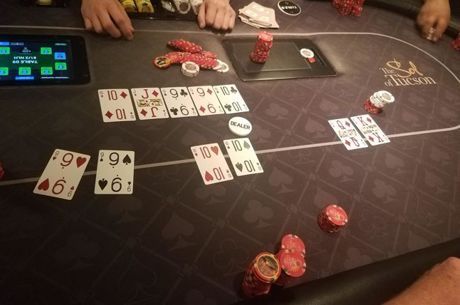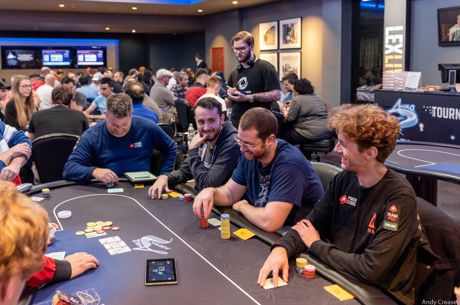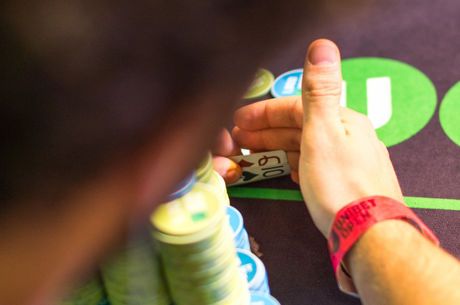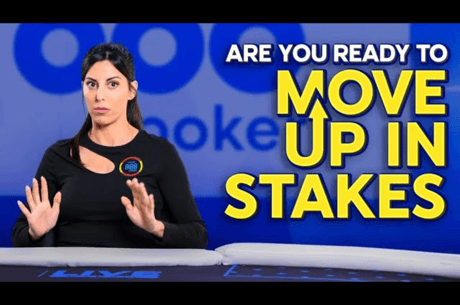Denying Equity in Order to Stop Running Bad
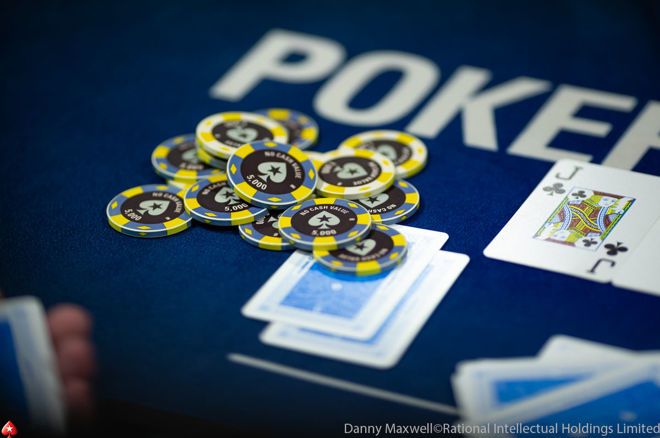
Everybody who plays a lot of poker has stretches when they run bad. During these times, it seems like the villains always fold to your value bets, but always call your bluffs. Meanwhile you call their value bets and fold to their bluffs, which they then gleefully show to rub it in. They hit their draws and your miss yours. And on and on.
The cumulative effect of running bad erodes your confidence in your reads and aggressively chips away at your emotional foundation, leading to poor decisions that extend the misery. One way to stop the bleeding is to focus on denying your opponents the opportunity to realize their equity. Let's explore this.
Take your seat, wait for your cards, and freeroll your way to the $500k XL Main Event on February 16.
Equity in a Nutshell
When there are cards still to come, your "poker equity" in a hand is the probability of winning at a showdown. When only the river card remains, equity is simply the number of winning outs divided by the number of unknown cards.
For example, suppose you have A?A?, your opponent has K?Q?, and the board reads J?6?2?5?.
Any spade will give your opponent a flush to win the hand, for a total of nine outs. There are 44 unknown cards, so your opponent's equity is 9 / 44 = 20.5%. The remaining 35 cards are your outs, so your equity is 35 / 44 = 79.5%. The sum of each player's equity is always 100%.
The math is more complicated when there are two cards left to come. Now there are 45 unknown cards, creating 990 combinations of turn and river cards.
Considering the same hand above but on the flop, I can use a poker odds app to figure out 37.8% of the turn and river combinations will give your opponent the winning hand, including those times he makes two pair, trips, or backdoor straights in addition to the obvious flush draw. Meanwhile your equity is 100% - 37.8% = 62.2%.
Expected Value and Equity
Expected value (EV) is a theoretical calculation of the average amount you would win if the same scenario were repeated so many times that a statistically normal result would be achieved. Put another way, EV converts equity into money.
Let's stick with the same example, after the turn card. Now let's assume there is $100 in the pot and you are so sure your opponent is chasing a flush draw that you won't call any river bet if another spade comes. Meanwhile your opponent is so certain you have pocket aces that he also won't call any river bet without making his flush.
With no further betting, you will either add all of the $100 pot to your stack, or none of it. Your EV is $79.50, or the average of your wins and losses if the 44 unknown cards were reshuffled over and over to deliver random river cards.
If you bet $40 and get called, another $80 is added to the pot. On average, you will add 79.5% of that to your stack, or $63.60. The EV of betting is the amount you stand to win less the amount you had to risk, or $63.60 - $40 = $23.60.
Mathematically speaking, whenever your equity is greater than 50%, betting (and getting called) is more profitable than checking. Strategically, you maximize EV by betting the largest amount your opponent will call.
Bet Larger to Deny Equity
Back to running bad. When it feels like monsters are lurking under every bed, examine your bet sizing in spots where you believe you have the best hand, yet the board is wet or dynamic enough to give your opponents a number of draws. If your ego or bankroll cannot afford to take many more hits, consider increasing the size of your bets.
Instead of betting the largest amount an opponent will call, bet more. Bet enough that a thinking opponent will decide chasing a draw isn't worth it and fold instead. By making larger bets, you are denying your opponents the opportunity to realize their equity.
To be clear, you will be sacrificing EV. Over the long run, denying equity over and over will make you less profitable, as it amounts to bluffing with the best hand. In the short run, however, winning small pots and tipping dealers can help right the ship and restore confidence.
Conclusion
Poker theory demands that you let your opponents chase their draws as a way of maximizing your long-term EV. While they win their fair share, you win much more when they call your bets and miss.
When you are running bad and it is affecting your game, there may be bigger considerations. Protecting your sanity, confidence or bankroll may be better served by an equity denial strategy in spots where you are likely ahead but facing draws. Make bigger bets to stake your claim to the pot.
David Bass mostly plays in live no-limit hold'em cash games and has been writing about poker since 2012. You can follow him on Twitter @KKingDavidPoker or enjoy his blog, They Always Have It.

